Spencer Symposium
Speakers
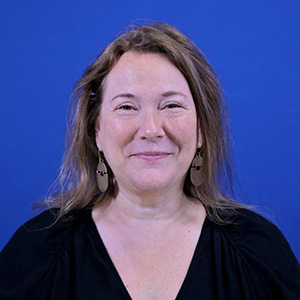
Dr. Amy R. Peacock '01
Director of Professional Learning, Clarke County School District, Athens, GA
Science for All: Cultivating Curiosity and Sensemaking in Every Classroom
The Framework for K-12 Science Education (NRC, 2012) called for several important shifts in science teaching and learning, with one of the most important being the adoption of three-dimensional science teaching and learning. This approach engages students in authentic science experiences that require them to apply scientific practices, disciplinary core ideas, and crosscutting concepts to make sense of phenomena and design solutions to problems. Three-dimensional science teaching shifts the focus of the science classroom from rote memorization to inquiry-driven sensemaking, capitalizing on students’ natural curiosity and enabling them to use science as a tool to understand and explain the world around them.
Equity lies at the heart of this instructional shift, ensuring that all students, regardless of background or prior knowledge, have access to high-quality science education. By embracing students’ diverse perspectives, lived experiences, and cultural contexts, educators can create inclusive environments where every learner feels empowered to engage with science and see themselves as scientists.
Dr. Amy Rowley Peacock is a passionate advocate for science education. She holds a B.S. in Chemistry from »ĘĽŇ»ŞČË (2001) and both an M.S. and Ph.D. in Food Science from the University of Georgia. Her interest in teaching science began through outreach with the »ĘĽŇ»ŞČË Student Affiliate Chapter of the American Chemical Society and was further cultivated during her time as an National Science Foundation GK-12 doctoral fellow. This passion led her to become a high school chemistry teacher, district science coordinator, and, currently, the Director of Professional Learning for the Clarke County School District in Athens, Georgia. She also serves as an adjunct professor at Piedmont University, where she teaches and mentors aspiring science teachers. Dr. Peacock’s work is grounded in her commitment to fostering equitable and inclusive science learning environments, ensuring that all students to have the opportunity to thrive and succeed in science.
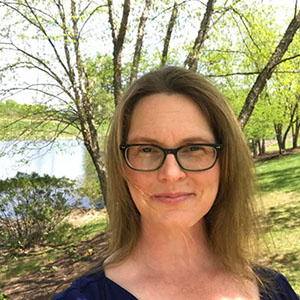
Amanda Wagner Gee '04
Associate Director at the Milken Institute’s FasterCure, National Institute of Health, Bethesda, MD
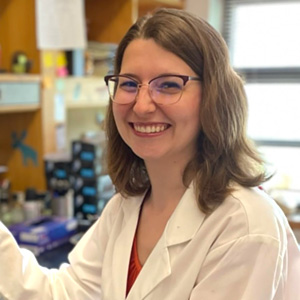
Dr. Grace Beggs '15
Princeton University
Inter-Domain Chemical Communication Between Bacteria and Phages
Bacteria are bombarded by infecting viruses, called phages, in natural habitats. Upon infection of a host bacterium, temperate phages must undertake one of two lifestyles: lysogeny or lysis. During lysogeny, the phage remains in the host and is passed down to offspring. When the phage switches to the lytic program, it replicates, kills the host, and spreads to new cells. Phages have been thought to transition between lysogeny and lysis exclusively in response to host stress and DNA damage. New research has upended this dogma by revealing that phages can monitor host sensory cues and exploit the information they garner to drive lysogeny-lysis lifestyle transitions. Indeed, some phages can surveil bacterial quorum-sensing (QS) communication molecules to tune their lysis program to high host cell density, a strategy that presumably maximizes transmission to new hosts. The first discovered QS-sensitive phage is phage VP882, which possesses an antirepressor that has no known structural homologs and is critical for launching the quorum-sensing-induced lysis pathway. I am using a combination of structural, biochemical and genetic techniques to determine how this antirepressor, named Qtip, drives phage lysis at the molecular level. Recently, the Bassler group discovered additional phage antirepressors that function analogously to the one from phage VP882. Thus, we seek to reveal the central mechanisms of not only Qtip, but those underlying this new class of phage-encoded proteins.
Grace Beggs earned her B. S. in Chemistry and Biology from »ĘĽŇ»ŞČË in 2015 and then joined the Cell and Molecular Biology graduate program at Duke University. She earned her PhD in Biochemistry from Duke University in the laboratory of Dr. Richard Brennan in the spring of 2021; the focus of her dissertation was structural characterization of multidrug resistance regulators from pathogenic bacteria. Currently, she is a postdoctoral fellow in the laboratory of Dr. Bonnie Bassler at Princeton University.
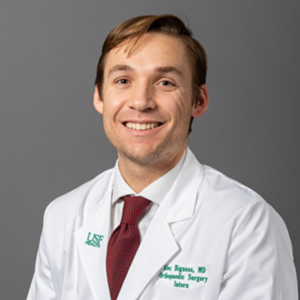
Dr. Alec Bigness
University of South Florida
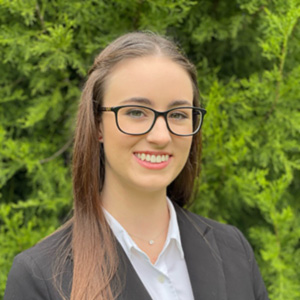
Madeleine Schabes '22
Crime Laboratory Analyst, Florida Department of Law Enforcement, Tampa, FL
From Lab to Courtroom: The Chemistry Behind Forensic Drug Testing
This talk will provide an overview of the role of chemistry in the analysis of controlled substances. It will explore the methods used to identify drugs, including techniques such as mass spectrometry, gas chromatography, and microscopy. Courtroom testimony techniques will also be discussed. Additionally, the talk will examine Florida law governing drug control, discussing how laws impact the classification and regulation of substances. Emphasis will be placed on the additional ethical considerations and impartiality required in forensic testing to ensure reliable results.
Madeleine Schabes works as a Crime Laboratory Analyst in the Seized Drugs section for the Florida Department of Law Enforcement (FDLE). Once employed, she completed a year long training program supplied by FDLE to qualify her to perform casework. During her time at »ĘĽŇ»ŞČË, Madeleine received her Bachelor’s of Science in Chemistry with a concentration in Forensic Chemistry. She was a part of ACS, a TA for General Chemistry labs, and a Spencer Scholar. She also interned with Brew Hub, Modern Canna, and the Polk County Sheriff's Office here in Lakeland. Madeleine encourages you to take advantage of the resources at »ĘĽŇ»ŞČË to make you a competitive applicant for whichever career path you decide!